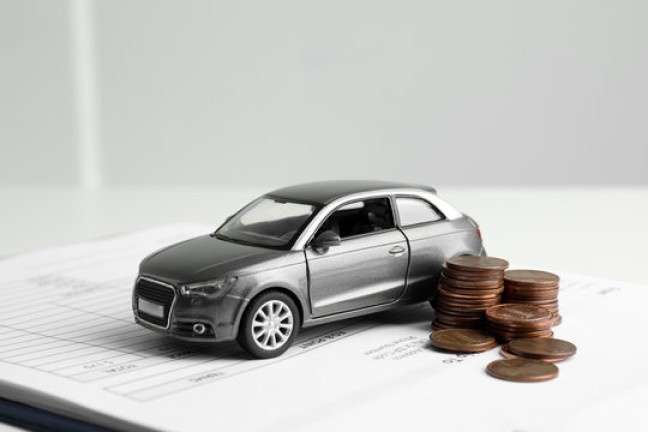Buying a car is a significant financial decision. When I explore financing options, I want to ensure I choose the best one that aligns with my needs. 360 car finance provides a holistic approach to financing by considering multiple factors, including credit history, budget, and repayment preferences. In this article, I will break down 360 car finance, explaining how it works, the different financing options available, and how it compares to traditional car financing.
Table of Contents
What Is 360 Car Finance?
360 car finance is a comprehensive financing approach that considers all aspects of my financial situation to tailor a loan plan that suits me best. It takes into account factors such as my income, credit score, and preferred loan term. Unlike conventional financing methods, which often focus only on monthly payments, 360 car finance provides a broader perspective by offering flexibility and personalized options.
How Does 360 Car Finance Work?
When I apply for 360 car finance, the lender reviews my financial profile holistically. This includes my credit score, income stability, and spending habits. The goal is to offer a solution that fits my financial situation while ensuring that repayments are manageable. The process typically involves the following steps:
- Assessing Financial Health: The lender evaluates my creditworthiness and income sources.
- Determining Budget: I determine how much I can afford to pay monthly without straining my finances.
- Choosing a Loan Type: Based on my financial standing, I select a financing option that suits me.
- Finalizing the Agreement: The lender and I agree on terms, interest rates, and repayment schedules.
Types of 360 Car Finance Options
360 car finance offers various loan types, each with distinct features. Below, I compare some common financing options.
| Financing Option | Key Features | Ideal For |
|---|---|---|
| Hire Purchase (HP) | Fixed monthly payments, ownership at end | Buyers planning to own |
| Personal Loan | Flexible use of funds, no deposit needed | Individuals with good credit |
| Personal Contract Purchase (PCP) | Lower monthly payments, final balloon payment | Buyers seeking flexibility |
| Lease Agreement | No ownership, lower monthly costs | Short-term vehicle users |
Hire Purchase (HP)
Under an HP agreement, I pay a deposit upfront and then make fixed monthly payments over a set period. Once I complete the payments, I own the vehicle. This option suits me if I want to spread the cost while eventually owning the car.
Example Calculation:
- Car Price: $20,000
- Deposit: $4,000
- Loan Term: 4 years
- Interest Rate: 6%
Using an HP agreement, my monthly repayment would be calculated as follows:
Loan Amount = $20,000 – $4,000 = $16,000
Monthly Payment Formula:
\text{Monthly Payment} = \frac{\text{Loan Amount} \times \text{Monthly Interest Rate} \times (1 + \text{Monthly Interest Rate})^{\text{Term in Months}}}{(1 + \text{Monthly Interest Rate})^{\text{Term in Months}} - 1} = \frac{16,!000 \times 0.005 \times (1 + 0.005)^{48}}{(1 + 0.005)^{48} - 1} = 375.68Personal Contract Purchase (PCP)
With PCP, I make lower monthly payments but face a final balloon payment if I want to keep the car. This method offers flexibility, allowing me to return the car, pay the balloon amount, or trade it in for a new one.
Example Calculation:
- Car Price: $20,000
- Deposit: $3,000
- Monthly Payments (3 years): $250
- Balloon Payment: $7,000
After making regular payments, I must decide whether to pay the final amount or return the car.
Personal Loans
If I choose a personal loan, I receive a lump sum and repay it in fixed installments. Unlike HP or PCP, I own the car immediately, which can benefit those with good credit scores.
Example Calculation:
- Loan Amount: $20,000
- Interest Rate: 5%
- Term: 5 years
Monthly payment calculation:
\text{Monthly Payment} = \frac{20,!000 \times \left(\frac{0.05}{12}\right) \times \left(1 + \frac{0.05}{12}\right)^{60}}{\left(1 + \frac{0.05}{12}\right)^{60} - 1} = 377.42Factors to Consider When Choosing 360 Car Finance
Choosing the right car finance option depends on several factors, including:
- Credit Score: A higher credit score means lower interest rates.
- Budget: I must ensure monthly payments fit within my financial plan.
- Ownership Goals: If I plan to keep the car long-term, HP or personal loans may suit me better.
- Flexibility Needs: If I prefer flexibility, PCP offers better options.
- Total Interest Costs: I compare interest rates and total costs across options.
Advantages of 360 Car Finance
- Tailored Solutions: Personalized financing options ensure I get a plan that suits my budget.
- Flexible Terms: I can choose repayment periods that fit my income cycle.
- Competitive Interest Rates: By considering my full financial profile, lenders may offer better rates.
- Improved Financial Planning: Knowing my total repayment obligation helps me plan better.
Disadvantages of 360 Car Finance
- Complexity: With multiple options available, choosing the right one requires careful consideration.
- Potential Fees: Some plans may include hidden charges.
- Credit Score Dependency: A low credit score may result in higher interest rates.
Comparing 360 Car Finance to Traditional Car Loans
| Feature | 360 Car Finance | Traditional Car Loan |
|---|---|---|
| Personalization | Tailored to my financial profile | Standard loan options |
| Flexibility | Various repayment options | Fixed terms |
| Ownership | Flexible ownership choices | Immediate or eventual |
| Interest Rates | May vary based on credit health | Fixed interest rates |
Final Thoughts
360 car finance provides a comprehensive approach to vehicle financing, ensuring I get an option that aligns with my financial goals. Whether I choose HP, PCP, or a personal loan, understanding my financial health and repayment ability is crucial. By weighing the pros and cons and carefully comparing options, I can make an informed decision that balances affordability with long-term financial stability.





